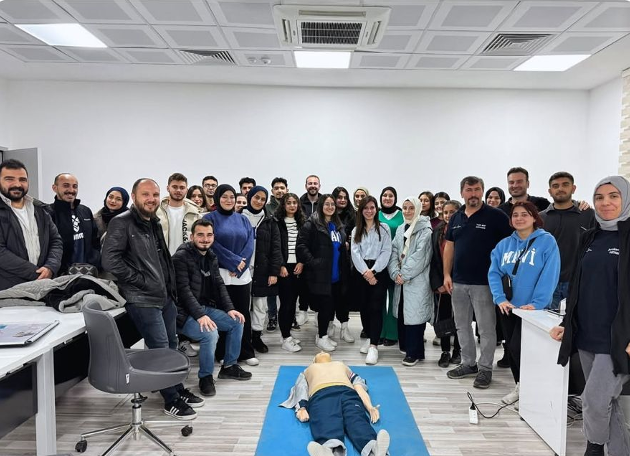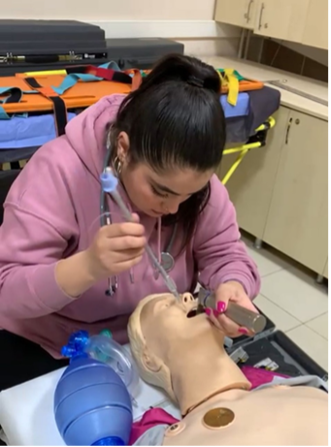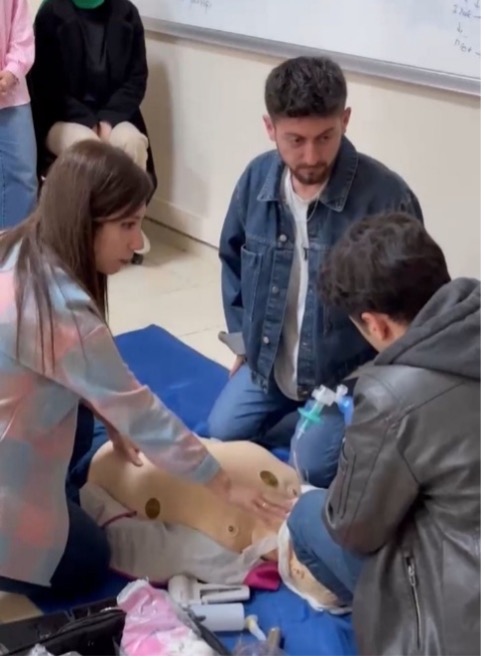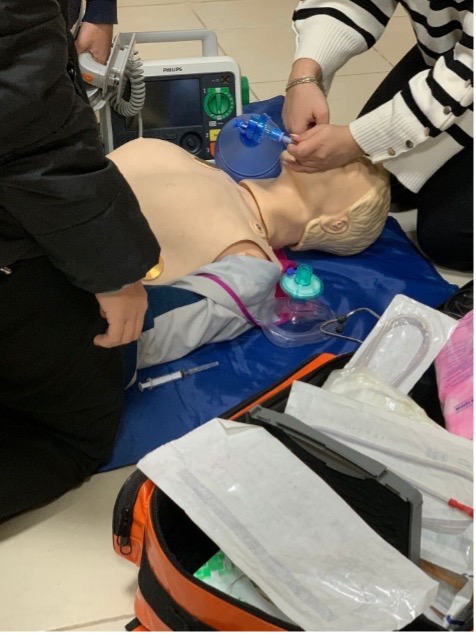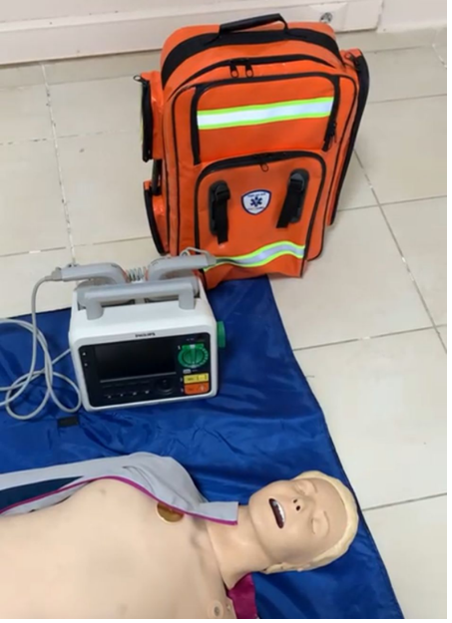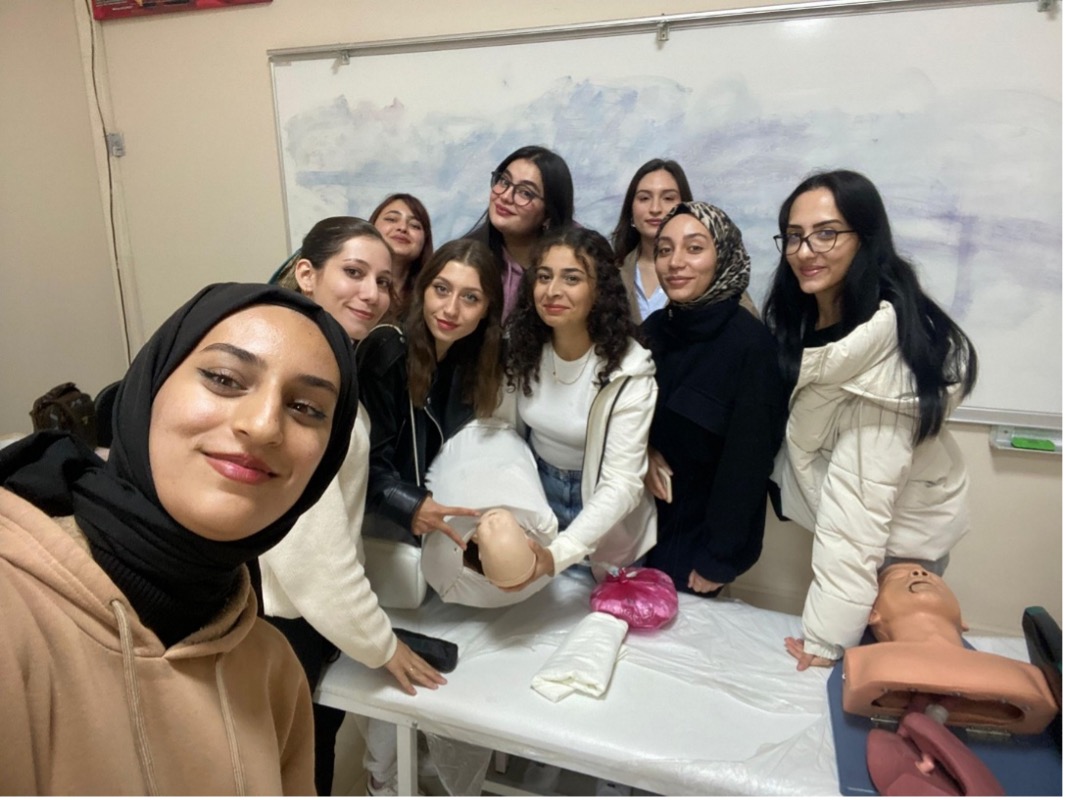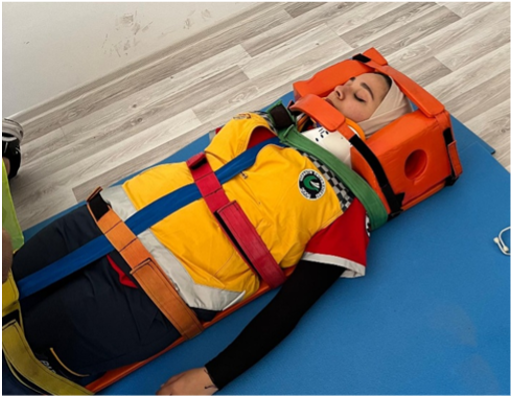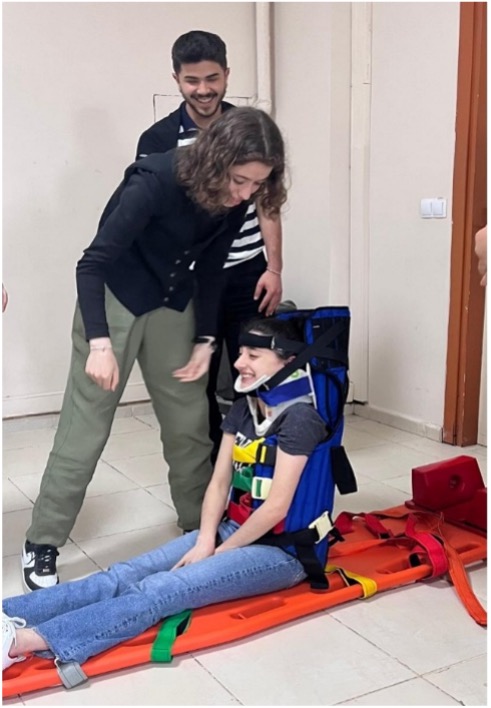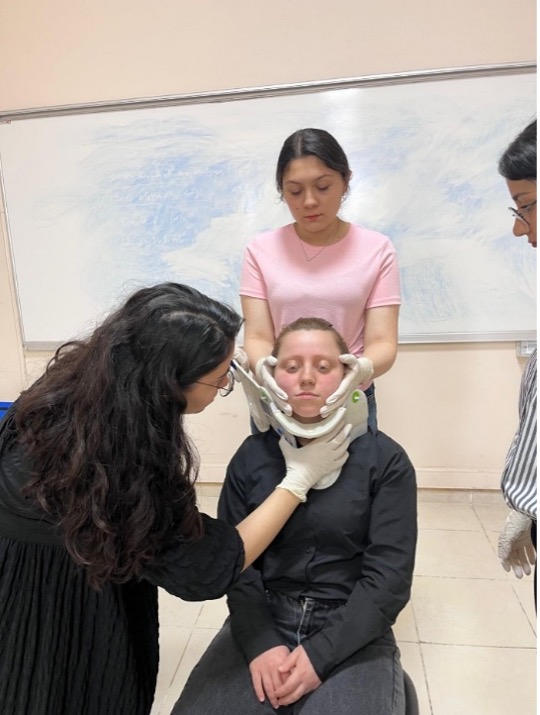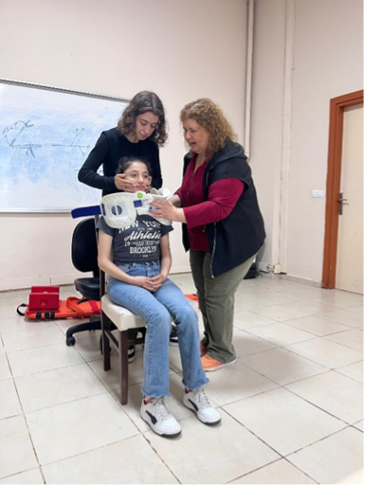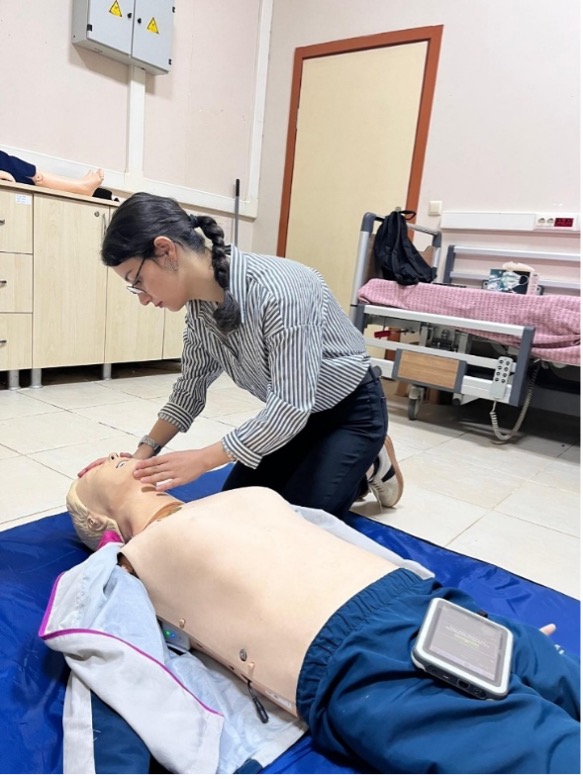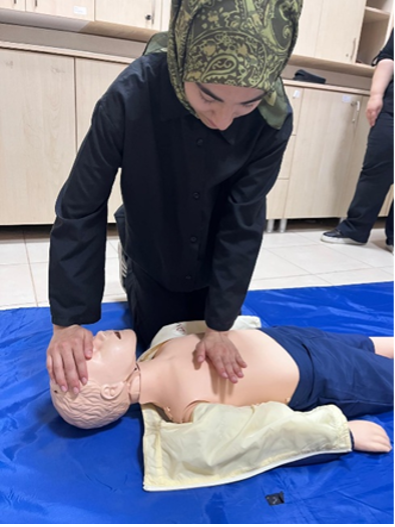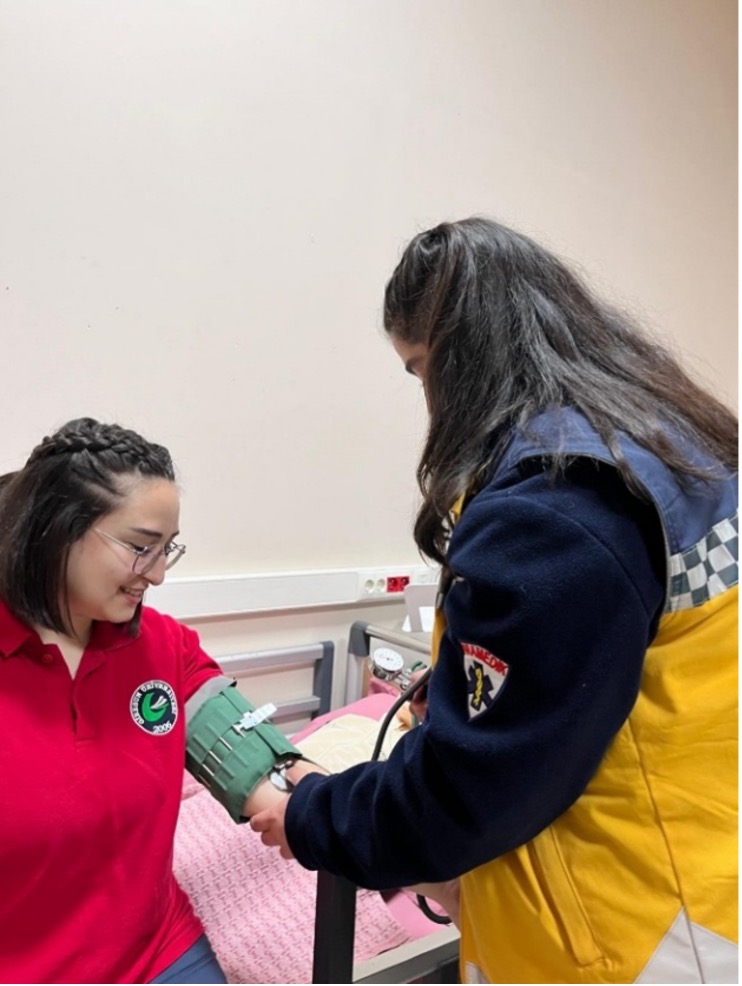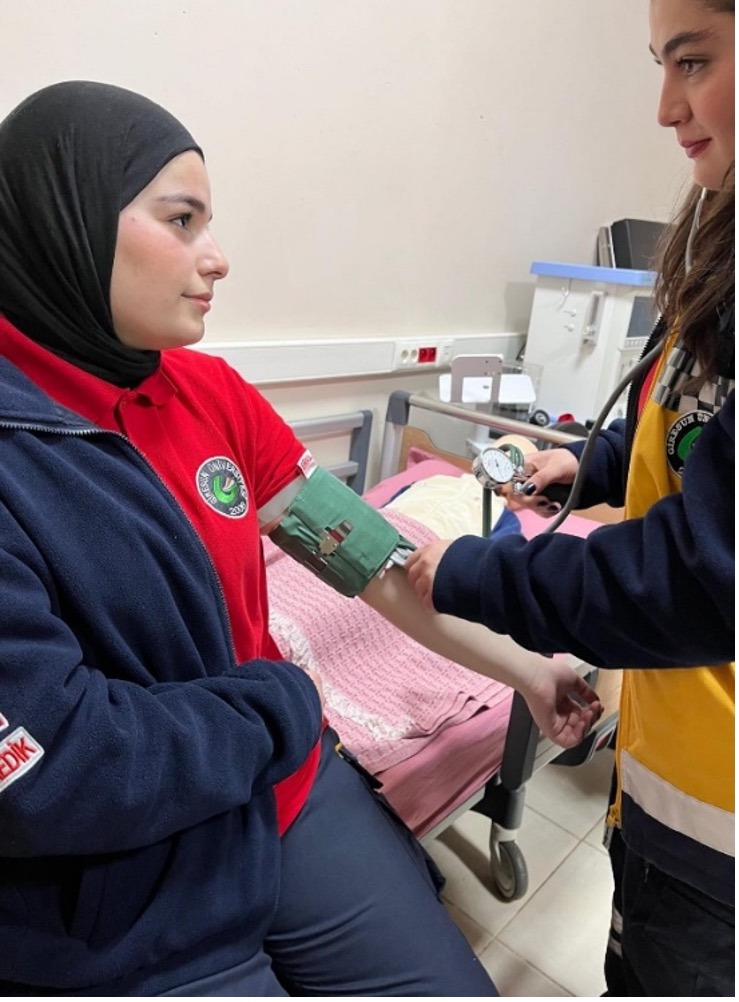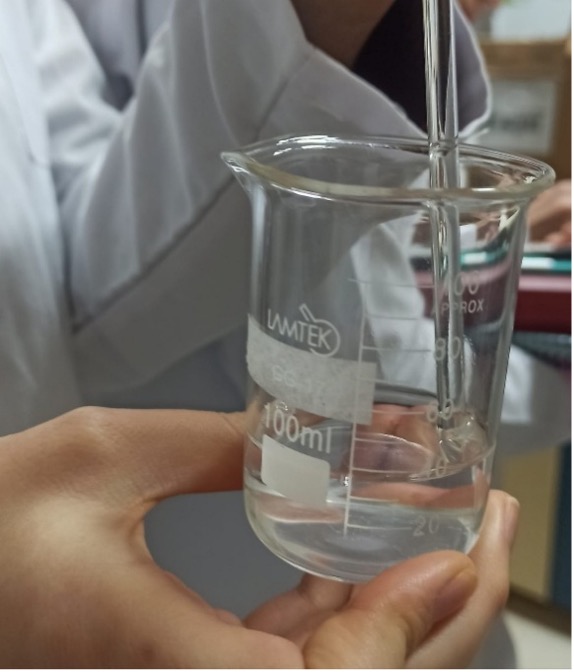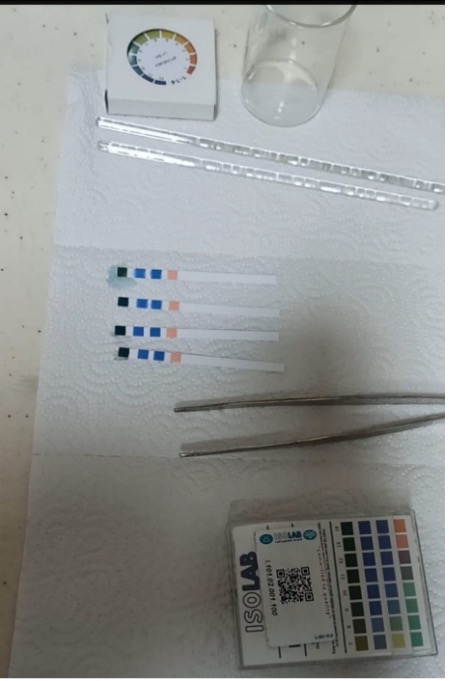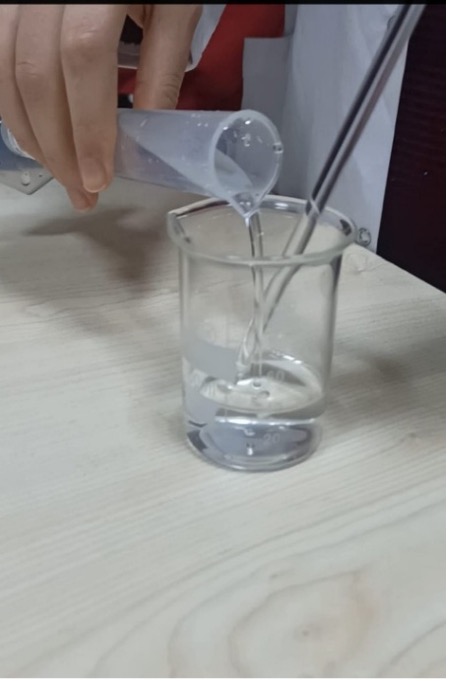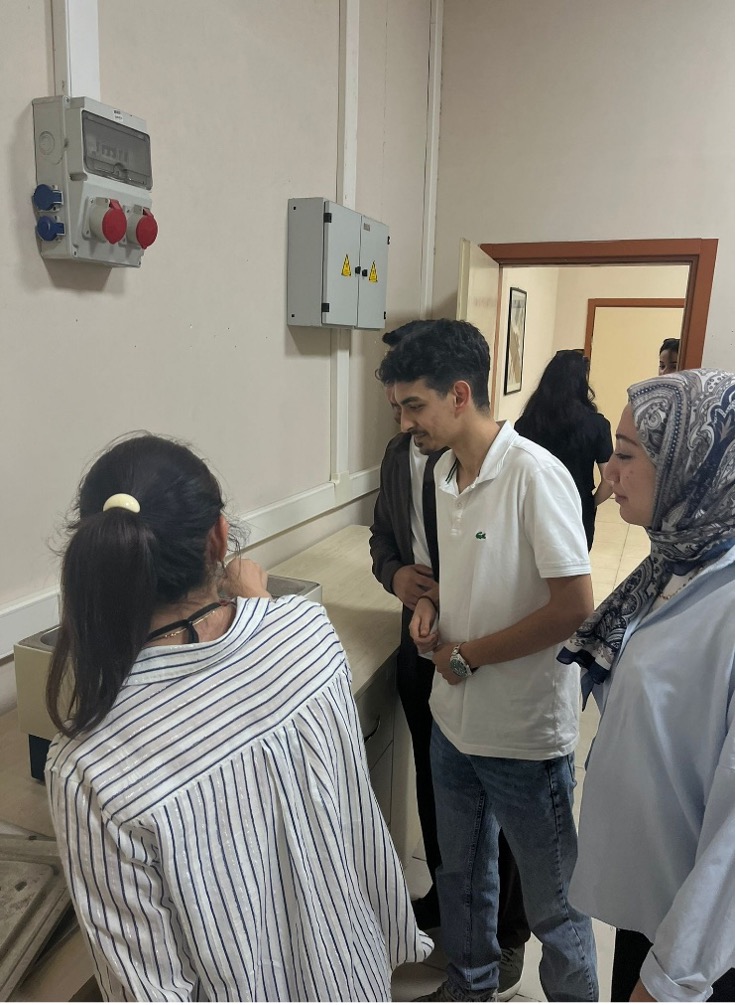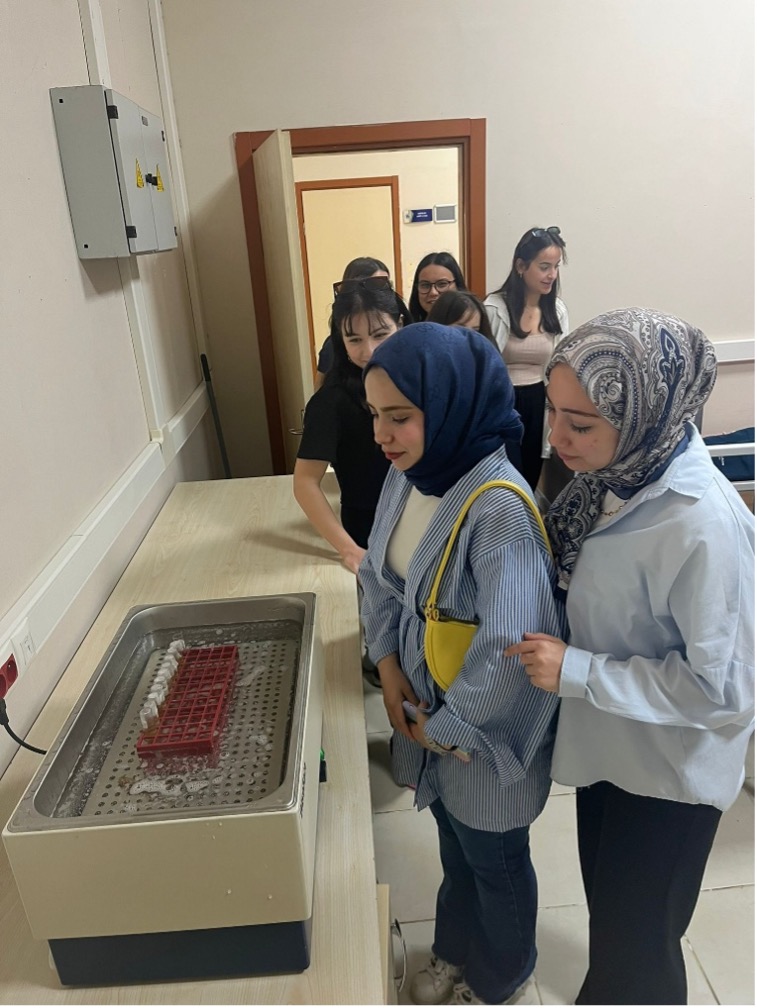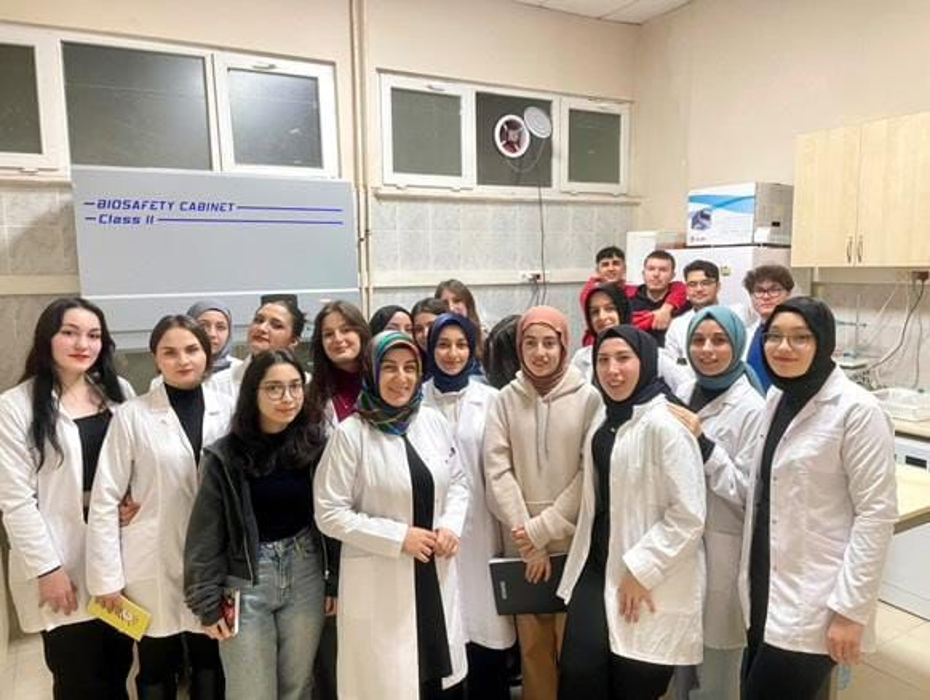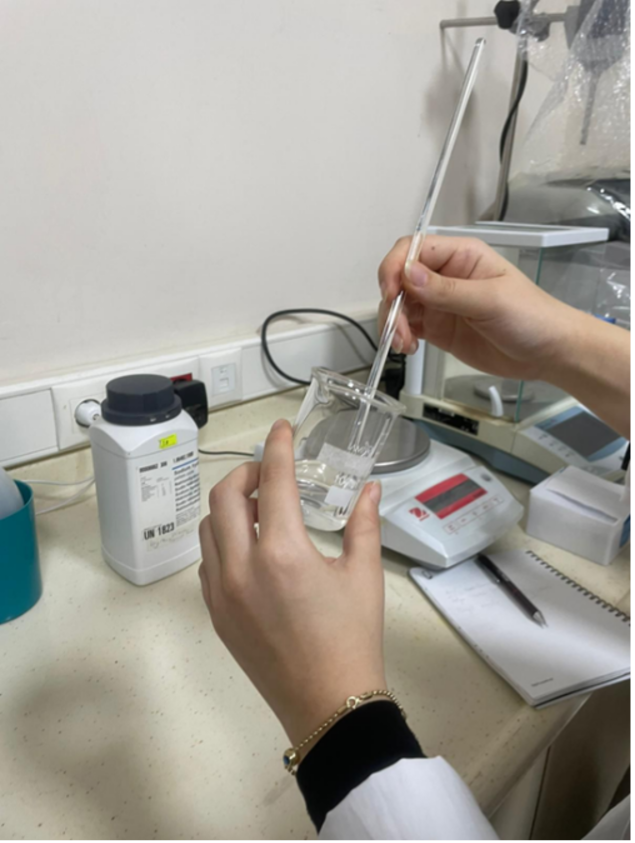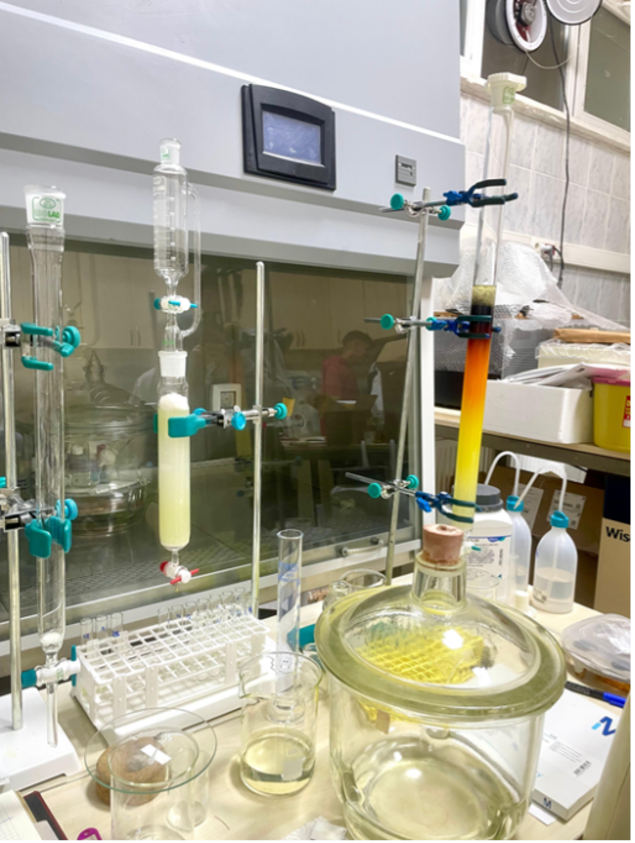Our college aims to maximize the professional competencies of our students by effectively using applied education methods alongside theoretical education in all programs during the spring semester of the 2024-2025 academic year. Examples of applied education practices implemented in our programs that adopt a student-centered approach are summarized below:
First Aid and Emergency Medical Services Program
Emergency Patient Care-I course on blood pressure measurement enables students to develop critical thinking skills by encountering realistic scenarios involving different conditions such as hypotension and hypertension. Extensive practice is conducted on simulation mannequins and volunteers, with peer learning and feedback exchange.
Resuscitation course on cardiac massage involves working on different arrest scenarios, where students develop correct reflexes under stress using simulation mannequins. The importance of teamwork is understood through scenario-based learning and peer feedback.
Ambulance Service Training-I course teaches the use of KED vest, cervical collar, and spine board with real equipment under different patient profiles (trauma patients, unconscious patients, shock patients) and environmental conditions (confined spaces, uneven terrain) through hands-on application.
Emergency Patient Care-III course on birth and obstetric emergencies enables students to learn complex situations such as shoulder dystocia, placenta previa, and eclampsia interactively. Vital interventions such as bleeding control, fluid resuscitation, and shock positioning are practiced in a safe environment.
Advanced Life Support Applications course allows students to apply intubation, defibrillation, cardioversion, and general arrest management algorithms in real-time, strengthening their ability to work in harmony with multidisciplinary team members.
Medical Laboratory Techniques Program
Laboratory Equipment and Maintenance course on glassware enables students to discover the unique characteristics of different types of glass equipment (beaker, Erlenmeyer flask, pipette, burette) through hands-on experience. Manual skills are developed by repeatedly practicing basic operations such as pipetting techniques, burette adjustment, and cleaning of glass containers.
Laboratory Chemistry course on solution preparation and pH measurement allows students to learn the mathematical principles and practical steps of preparing solutions of different concentrations (molarity, normality, percentage concentration) through experience. pH meter calibration, electrode maintenance, and procedures for accurately reading pH in different samples are applied one-on-one.
These applications aim to develop students' professional skills, transform their theoretical knowledge into practice, and help them become qualified healthcare professionals that the sector needs.

